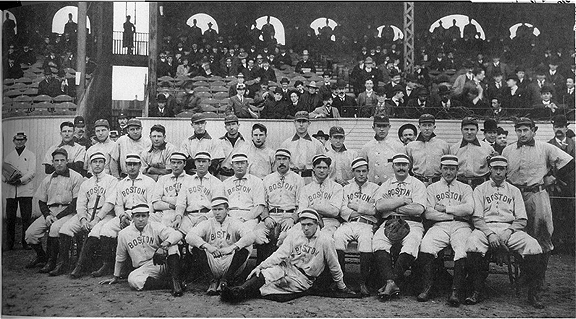 It is October and to this baseball fan, I have looked
forward to this time of year since I was a boy. This is when the postseason
takes place in Major League Baseball, culminating in the World Series. Even in
this covid-shortened year, the baseball postseason is the ultimate in sporting
playoffs in my opinion. They are built on a series of games, not just a one
game elimination. Eight teams from each league are trying to reach the World
Series, where the winner of the National League plays the winner of the
American League in a best of seven games series to take home the title.
It is October and to this baseball fan, I have looked
forward to this time of year since I was a boy. This is when the postseason
takes place in Major League Baseball, culminating in the World Series. Even in
this covid-shortened year, the baseball postseason is the ultimate in sporting
playoffs in my opinion. They are built on a series of games, not just a one
game elimination. Eight teams from each league are trying to reach the World
Series, where the winner of the National League plays the winner of the
American League in a best of seven games series to take home the title.
Sports are full of brands and baseball is the genesis sport
for understanding the value of a good brand. If you know your history, you know
that baseball became popular during the American Civil War, where soldiers with
time on their hands began to pick up the game and play it in their camps. By
1869, the National League had been formed with eight teams. In 1901, the
American League was formed, also with eight teams, some of them from the same
city as the National League teams. For instance, there were two teams in
Boston, Philadelphia, Chicago and, after 1903, three teams in New York. The
first World Series was held in 1903 between the Pittsburgh Pirates of the
National League and the Boston team from the American League. This was before
the Boston team had a brand name* (and there were two teams in Boston!) They
were referred to by different monikers by sportswriters, but were often
distinguished as the Boston Americans and Boston Nationals for the leagues in
which they were playing. You can see why there may be confusion when you
thought you were reading news about one team and it ended up being the other.
They each needed a brand to distinguish one from the other.
To clear things up, their management came up with brand
names for each of the teams: the Boston Red Sox and the Boston Braves (who have
since moved a couple of times and now play in Atlanta). With that simple name
change, a fan base was garnered for each team and loyalties became
generational. There were team brands you followed and bought their merchandise.
There were other teams you despised because of the rivalry. This was all made
possible by the clarification that branding had on the casual fan. It was not
long after this that baseball took off as America’s first major sports
business. Before there were football, basketball, and hockey franchises, there
were baseball teams drawing tens of thousands of loyal fans per game and
offering opportunities to businesses who were looking for a crowd to which they
could advertise their products. Without team brands in baseball, sports as we
know it would have remained a novel pastime on the level of going to the movies
or listening to a concert.
What can you learn about the value of a brand from this
baseball reference? First, a good brand distinguishes you from your
competition. I get frustrated with clients who want to copy someone else’s
logo, especially if they are in the same industry. Why look like them? A brand
should make you distinct. Secondly, your brand has to stand for something. Are
you about the best price, about top-shelf quality, about giving the customer
more than they asked for, etc.? Your brand should stand for your reputation as
a business. Finally, a good brand will become the banner for loyalty in your
customers. Think about the brand loyalty you exhibit. How would you answer the
question: I would only buy __________ brand when I am purchasing ____________.
Here is something about baseball and your customers: if they experience your
brand and they like the results, they are likely to start cheering for you on a
regular basis.
We all want loyalty from our customers. A good brand helps
your customer pick you and reject your competition.
_____
* It is often reported that the American League team from Boston who played in the first World Series were known as the Boston Pilgrims. However, the name was applied to them in the record books some time after the franchise was renamed the Red Sox in 1907. By all accounts, the team did not have a brand name until they became the Red Sox. The Boston Pilgrims Never Existed by Bill Nowlin, Baseball Almanac https://www.baseball-almanac.com/articles/boston_pilgrims_story.shtml